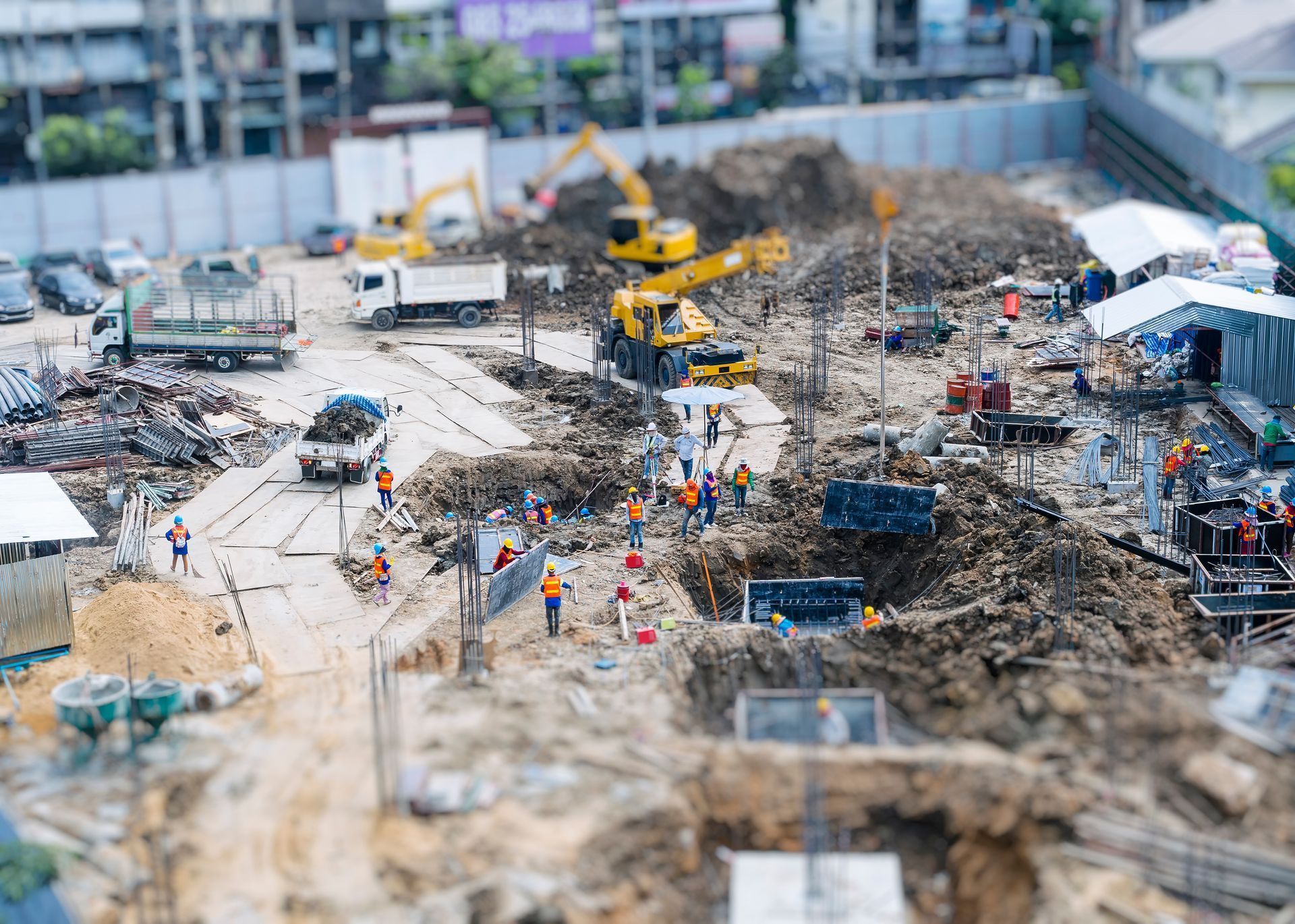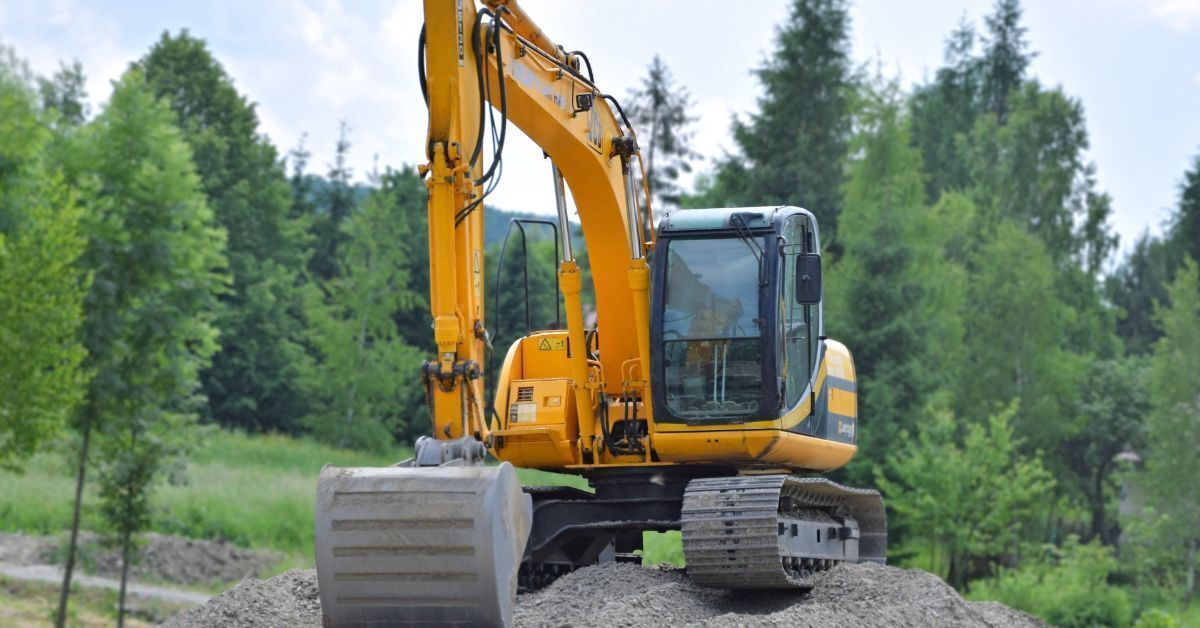Heavy Highway Earthworks: The Key to Successful Commercial Land Development
If your commercial land development plans include changes to the earthworks of a busy highway, you need to be prepared for a complex and challenging process. After all, traffic needs to remain uninterrupted during the course of construction, and the safety of any pedestrians or motorists in the vicinity must always be respected. But by taking time beforehand to properly plan and understand what's involved with heavy highway earthworks projects – from selecting an experienced contractor to navigating government regulations – you can make sure that your project is successful without delays or costly surprises along the way. In this blog post, we'll take an in-depth look at these important considerations so that you can feel confident moving forward on your next big venture!
Plan Ahead and Secure a Contractor
When embarking on a commercial land development project, planning ahead and securing the services of an experienced heavy highway earthworks contractor are essential.
A heavy highway earthworks contractor knows what it takes to plan and prepare for the start of a job and any obstacles that may be encountered during the work. Employing a qualified team from the outset assures that your project will be completed on time, on budget, and with a minimal amount of disruption for adjoining properties.
Working with an experienced contractor is key to ensuring a successful outcome for your commercial land development project and peace of mind throughout all stages of the process.
Find a Qualified Contractor
Finding the right contractor for your home improvement project can be a daunting task. There are so many out there to choose from, how do you know who to trust?
One of the best ways to find a qualified contractor is by word-of-mouth. Ask your family and friends if they have any recommendations. Chances are, they know someone who has had a good experience with a contractor and can direct you in the right direction.
Another great way to find a reputable contractor is by checking with your local Better Business Bureau (BBB). The BBB is a non-profit organization that rates businesses on a scale from A+ to F based on things like customer satisfaction and transparency. You can also check out reviews online to get an idea of what others have thought of the contractor's work.
Once you've narrowed down your list of potential contractors, it's important to ask them the right questions. Things like their experience in the field, licensing and insurance, and what kinds of materials they plan to use should all be taken into consideration.
Understand the Regulations
The topic of government regulations can be confusing and overwhelming for small business owners. It can be difficult to understand what regulations apply to your business and how to comply with them. The best way to start is by learning about the different types of regulations that may affect your business.
There are federal, state, and local regulations, and each level of government has its own set of rules. Federal regulations are made by agencies like the Environmental Protection Agency (EPA) and the Food and Drug Administration (FDA). State regulations are created by state governments, and local regulations are set by cities and towns.
Some common federal regulations small business owners need to know about include the Fair Labor Standards Act (FLSA), the Occupational Safety and Health Administration (OSHA), and the Americans with Disabilities Act (ADA). The FLSA sets minimum wage and overtime standards, OSHA regulates workplace safety, and the ADA prohibits discrimination against people with disabilities.
State and local regulations vary greatly depending on the location, so it's important to research the specific regulations that apply to your business. Some common state regulations include requirements for licenses and permits, zoning laws, and sales tax rules. Local regulations can include things like parking restrictions and noise ordinances.
It's important to comply with all applicable regulations, as failure to do so can result in fines or even imprisonment. There are many resources available to help small business owners understand their obligations under the law, including the Small Business Administration (SBA) website and state government websites. It's important to consult with an attorney if you have specific questions about which regulations apply to your business.
Communicate with the Authorities
When it comes to interacting with the authorities, it's important to be aware of your rights and know how to communicate effectively. It's also important to be respectful and cooperative.
If you're stopped by the police, you should always remain polite and calm. You don't have to answer any questions, but it's usually best to be cooperative. You can ask the officer why you were stopped, and you can also ask if you're free to go. If the officer says no, you can ask why not. You should always keep a cool head and avoid becoming argumentative or confrontational.
If you need to contact the police for any reason, it's best to call 911 in an emergency or your local non-emergency number if it's not an emergency. When you call, be prepared to give the dispatcher your name, address, and phone number. If you're reporting a crime, be sure to give the dispatcher as much information as possible so that they can send help. Stay on the line until the dispatcher hangs up, even if they tell you they've already sent help.
Monitor the Progress
As the semester progresses, it's important to monitor the progress of each student in order to provide the best possible support. Some students may be falling behind, while others may be excelling beyond expectations. It's important to stay on top of both groups so that no one falls through the cracks.
One way to monitor progress is by keeping track of grades. If a student is consistently slipping below a C+, it may be time to intervene and find out what the problem is. On the other hand, if a student is getting straight A's, it's important to continue providing support so they can maintain that level of success.
Another way to monitor progress is by talking to students regularly. Ask them how they're doing in class, whether they're struggling with anything, and whether they have any questions. This will help you get a sense of how each student is doing and whether they need any extra help.
It's important to monitor progress throughout the semester so that everyone can succeed. By staying on top of things, you can make sure that no one falls behind or gets left behind.
These five points are just the beginning when it comes to ensuring that your construction project goes smoothly. For more detailed information on each of these topics, click here. By taking the time to plan ahead, find a qualified contractor, and understand the regulations, you can set your construction project up for success from the very start.
If you're looking for an experienced and reliable excavation contractor to help with your land development project, look no further than
Dynamic Earth Solutions. With over 40 years of experience in the Seminole area, you can trust that we will complete your project on time and on budget. Our team of experts is committed to providing high-quality services so that your project meets all the requirements and regulations. We understand that this is a significant investment, so we take our responsibilities seriously to ensure your success. Give us a call at 405-446-6327 today to learn more about how we can help you with your project!












